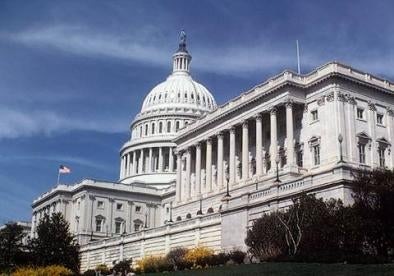The Defend Trade Secrets Act (“DTSA”), S. 1890, which would provide federal jurisdiction for the theft of trade secrets, has moved out of the U.S. Senate Judiciary Committee with bi-partisan support. With this procedural hurdle cleared, the DTSA is now in the hands of Senate Majority Leader Mitch McConnell. Should he bring the bill to the floor for a vote, it likely would pass.
Passage in the Senate may move the bill’s House of Representatives counterpart, H.R. 3326, out of the subcommittee in which it has been stuck since last October. The bill enjoys substantial support from the business community.
Trade Secret
A trade secret is information known by an individual or entity that is valuable, is not generally known, and is not readily ascertainable by proper means, by others (e.g., competitors), and is subject to reasonable efforts to maintain its secrecy.
The DTSA uses the same definition for a “trade secret” as the Economic Espionage Act of 1996, the criminal statute, which states that:
[T]he term “trade secret” means all forms and types of financial, business, scientific, technical, economic, or engineering information, including patterns, plans, compilations, program devices, formulas, designs, prototypes, methods, techniques, processes, procedures, programs, or codes, whether tangible or intangible, and whether or how stored, compiled, or memorialized physically, electronically, graphically, photographically, or in writing if —
(A) the owner thereof has taken reasonable measures to keep such information secret; and
(B) the information derives independent economic value, actual or potential, from not being generally known to, and not being readily ascertainable through proper means by, the public.
DTSA
The DTSA would be the civil partner to the criminal provisions of the Economic Espionage Act. Significantly, the DTSA, for the first time, would create a federal private right of action for misappropriation of trade secrets. Currently, companies that are victims of trade-secret theft depend on state law, usually applied by state courts, or the Attorney General to bring a civil action to enjoin violations of trade-secret theft, for relief.
While most states’ protections for trade secrets are roughly equivalent, the case law within each state’s body of jurisprudence is not identical and not controlling on any other state’s interpretation. Thus, a company may find one state will protect its trade secrets but another, under identical facts, may not.
This uncertainty of protection from state to state is a significant motivating factor behind the DTSA. For instance, while all but a handful of states have enacted the Uniform Trade Secrets Act (“UTSA”) in some form, substantial differences exist among states that have enacted a version of the UTSA. As one example, Texas’ and Illinois’ version of the UTSA explicitly protects “actual or potential customers” as a trade secret, thereby creating protections for employers whose employees leave and join a competitor. However, not every state that has enacted the UTSA offers such explicit protection. Texas law also protects relationships with vendors, while many other state laws do not specifically protect those relationships. Each state court is free to interpret its version of the UTSA in its own manner, which also creates variations from state to state. For example, some states recognize the “inevitable disclosure” doctrine — by which a court can enjoin employment where the defendant individual “inevitably” will have to make use of knowledge of the former employer’s trade secrets in his or her new job at a competitor — whereas other states do not recognize that doctrine.
Furthermore, some states (i.e., New York, Massachusetts, and North Carolina) have not enacted a version of the UTSA. These states rely on different statutes and common law protections afforded to trade secrets that often vary significantly from the UTSA and from state to state. These variations pertain to the kind of information that is afforded trade secret protection, as well as the availability of attorneys’ fees to the prevailing party in trade secrets litigation.
By providing a federal forum and remedy, the DTSA, over time, would create a nationwide body of law and provide certainty to companies. However, the DTSA does not preempt state trade secrets law. Therefore, companies still may seek relief under state law, such as where the definition of trade secrets is broader under state law or where state law provides a broader remedy, whether in actions filed in state court or as pendant claims to an action in federal court under the DTSA.
The DTSA is similar to the UTSA and the state variants in that the definition of “trade secrets” and “misappropriation” are substantively indistinguishable from the UTSA definitions. However, as state enactments and interpretations of the UTSA vary, employers should carefully consult their applicable states’ laws before seeking relief for misappropriation of trade secrets.
What the DTSA adds substantively, however, is its authorization of ex parte seizure orders — a provision that, in the past, has derailed passage of these bills in Congress. The DTSA addresses previous concerns by more narrowly restricting the ability of a court to issue a seizure order. Under the DTSA, such an order must be the “narrowest” necessary to achieve the purpose of the order. Further, the circumstances under which such an order can be issued also are restricted. Filing a complaint does not mean a seizure order likely will be issued; fairly substantial proof will be required to obtain this extraordinary interim remedy.
The DTSA also substantially limits use of the “inevitable disclosure” doctrine. Under the DTSA, a court may grant an injunction to prevent an actual or threatened disclosure of trade secrets, but the injunction may not “prevent a person from entering into an employment relationship” and any “conditions placed on such employment shall be based on evidence of threatened misappropriation and not merely on the information the person knows.”
In addition to injunctive relief, the DTSA provides for specific monetary damages for a violation. Depending on the circumstances, the damages could include royalty payments from the defendant, actual financial losses, a monetary award to redress the unjust enrichment of the defendant, and up to two times the foregoing amounts as punitive damages. Reasonable attorneys’ fees also are recoverable.
Next Steps
Before and after passage of the DTSA, companies are well-advised to identify their trade secrets, protect them against inappropriate use or disclosure, and establish the steps taken to maintain their secrecy. For example, documents containing trade secrets should be labeled as confidential, their distribution should be limited, they should be maintained in secure areas (e.g., locked cabinets), and individuals who know such secrets should be trained on the nature and protection of that information. Similarly, access to computer files containing such information should be limited, and those with access should be trained regarding the confidential nature of the information. Such steps not only can limit the risk of inappropriate use or disclosure, they also are invaluable when seeking a court’s protection of the trade secrets at issue.
For companies with operations in only one state, the DTSA may not have a meaningful substantive impact, though access to federal courts and federal judges can be a significant benefit in its own right, particularly if the state’s courts have shown themselves to be slow to respond, or even hostile, to trade-secrets litigation.
For companies with multi-state operations, and even for companies with single-state operations but whose trade secrets are portable across state lines (by hard copy documents or electronically), the DTSA provides an opportunity to create uniformity and certainty in protecting trade secrets. In addition, because trade secrets litigation often involves contractual violations of non-competition or non-solicitation agreements, such claims also may be brought in federal court in tandem with the DTSA violation. Thus, the DTSA would provide a new, meaningful alternative to state court litigation when seeking to protect trade secrets and related unfair competition.






 i
i

